
Whitehouse
Whitehouse
Formed as a means to realise William Bennett’s goal of “a sound that could bludgeon an audience into submission”
Arika have been creating events since 2001. The Archive is space to share the documentation of our work, over 600 events from the past 20 years. Browse the archive by event, artists and collections, explore using theme pairs, or use the index for a comprehensive overview.

Formed as a means to realise William Bennett’s goal of “a sound that could bludgeon an audience into submission”
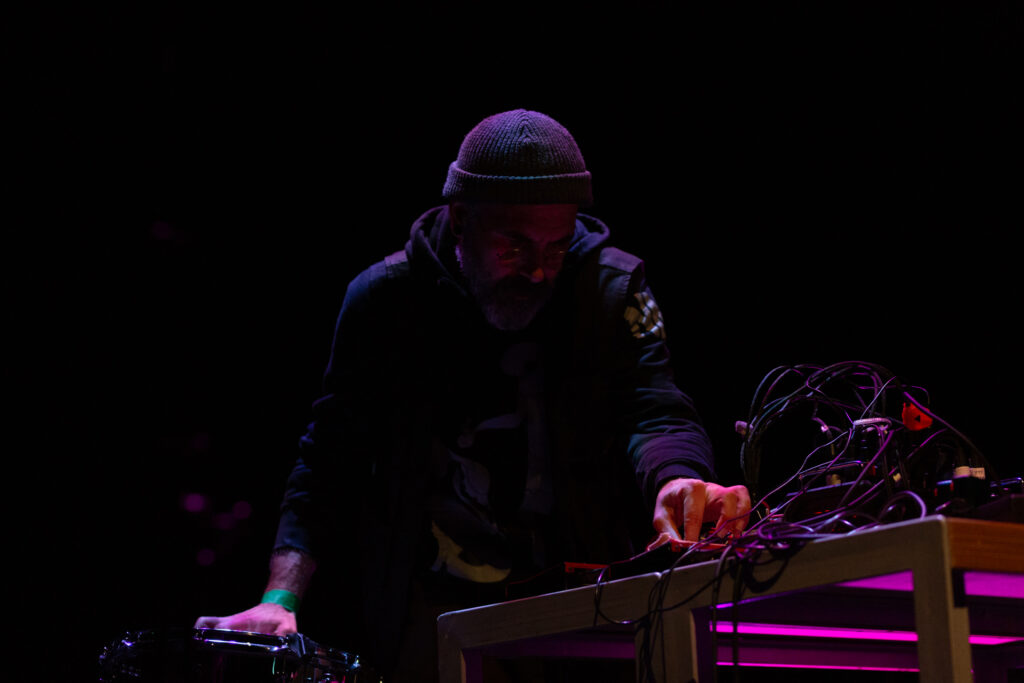
The most sophisticated synthetic music around: timbrally otherwise body music as sonified fictions and auditive sociograms.
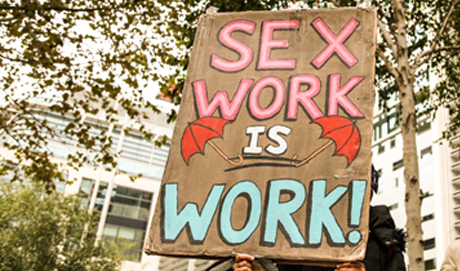
Join Umbrella Lane and special guest migrant trans sex workers in a community discussion about the points of intersection in LGBT people’s rights and sex worker’s rights.

Trio vocal performance of a score by Achim Wollscheid with Aileen Campbell, Junko and Dylan Nyoukis.

William cradles, hammers, and rains down blows, plucking and using 2 bows to attack the strings above and below the bridge, all in the service of a fiery and passionate creativity.

A celebration of our overabundant social entanglement and complicity, that remind us of how we can see ourselves, stripped of powers’ attempts to grasp us.

Profound mathematical ideas for romantics, to help us linger in the difference we share.
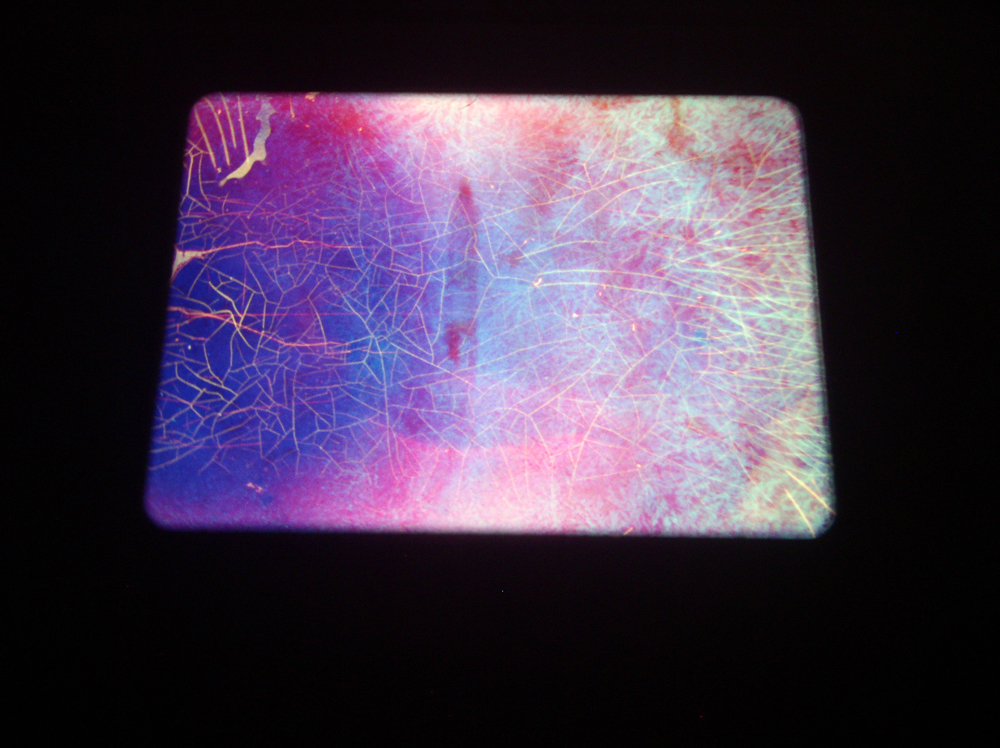
An immersive live performance for multiple 16mm film and bass clarinet, taking in the whole gallery, submerging the audience.

A dance party love letter to our community, expressing the joy of relation in the abstract and through actual physical proximity.
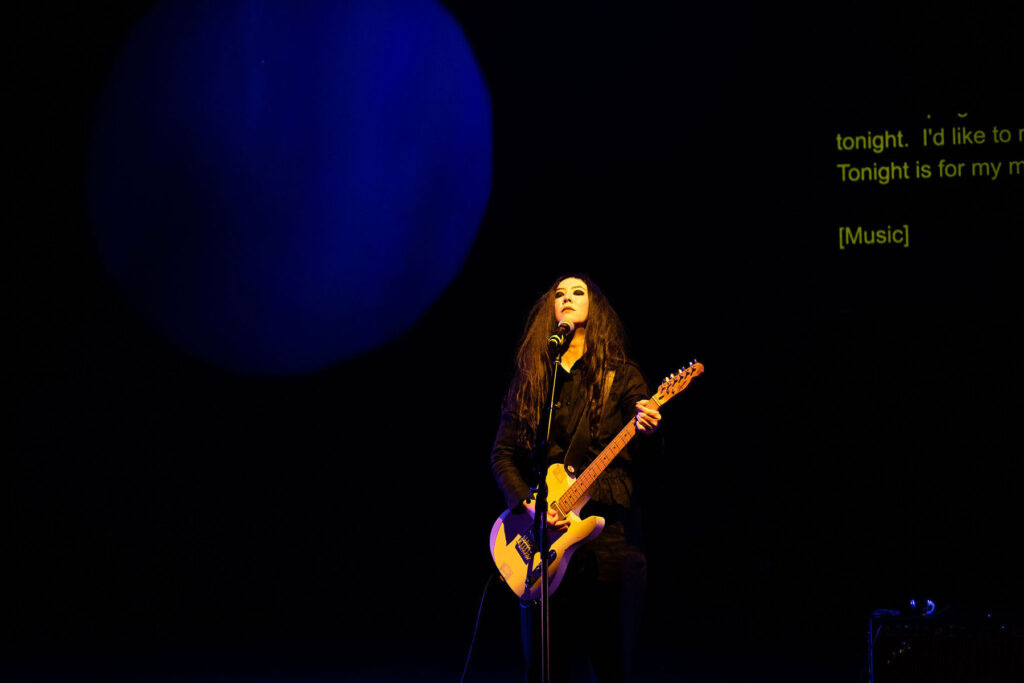
Guitar and voice. Keening, droning and mourning. Be ready to release and bring your dis-ease.
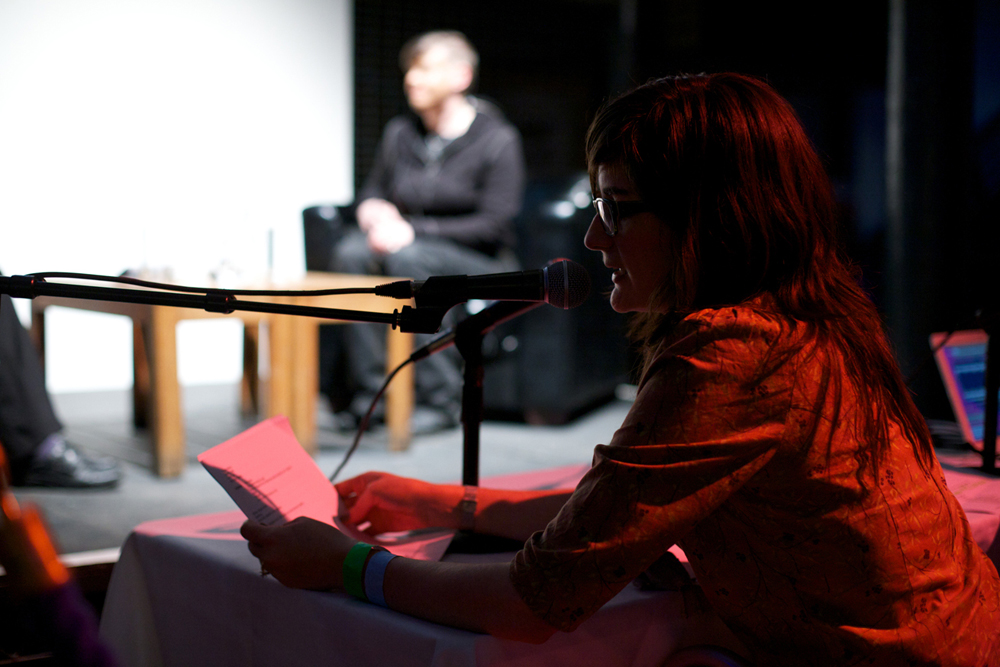
A series of reality dramas happening over the course of the weekend.
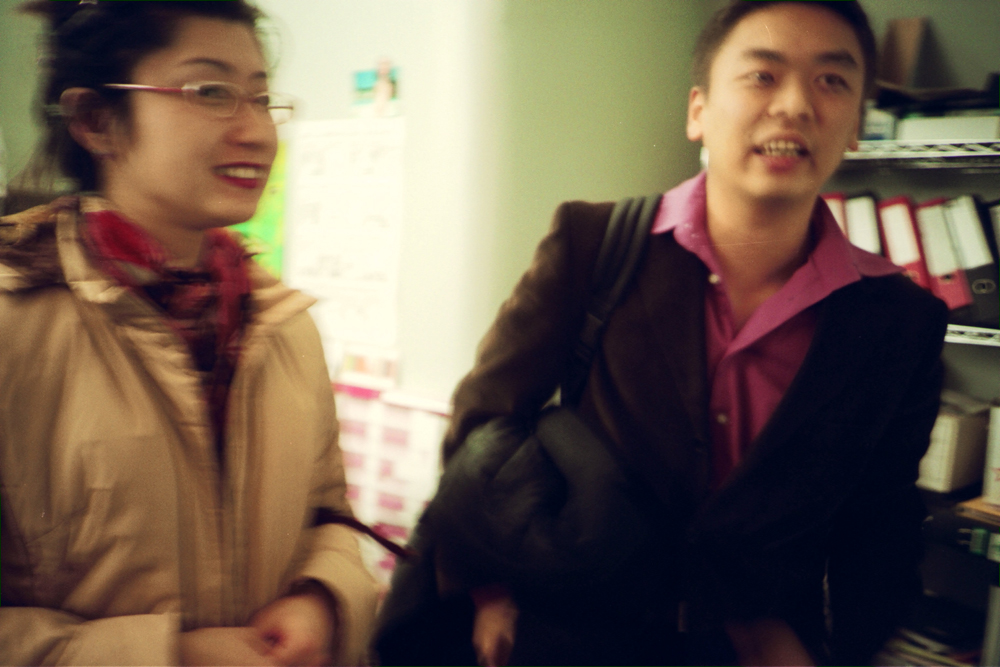
Work for cello, percussion, contra bassoon and cherbulum commissioned for Instal in collaboration with Paragon